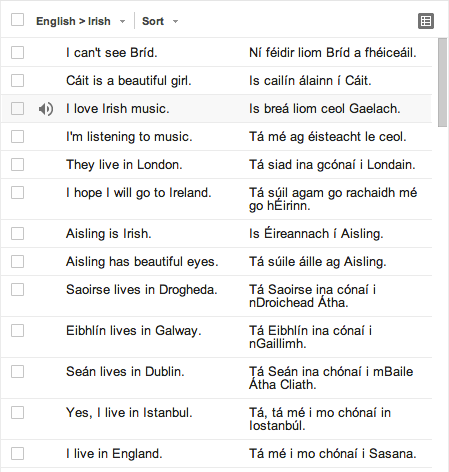Eibhlín wrote:Go raibh maith agat! In which cases is it required to use the genitive case?
Are you specifically talking about the objects of verb-nouns? Generally speaking, the genitive is used except with
indefinite objects that are
further qualified by some sort of modifier. Thus:
Tá Caitlín ag léamh leabhair. (indefinite, not further qualified)
Tá Caitlín ag léamh leabhar staire. (indefinite, further qualified)
Tá Caitlín ag léamh an leabhair. (definite, not further qualified)
Tá Caitlín ag léamh an leabhair staire. (definite, further qualified)
Eibhlín wrote:Which is correct?
Tá mé ag ithe ubh.
or
Tá mé ag ithe uibhe.
Both are, depending on dialect. In some varieties (e.g. Muskerry),
ubh is treated as a masculine noun of the first declension. This means that
ubh is both the nominative singular and the genitive plural while
uibh is the nominative plural and genitive singular. In these varieties,
Tá mé ag ithe ubh means "I'm eating eggs". In Standard Irish,
ubh is an irregular feminine noun of the second declension with genitive singular in
uibhe and plural (all cases)
uibheacha (but
uibhe after numberals).
Tá mé ag ithe uibhe thus means "I'm eating an egg".
Eibhlín wrote:And one more question: Which books do you recommend me for learning Irish? Have you ever used Teach Yourself, Routledge (Colloquial and Grammar Workbooks) or Living Language Irish? If you did, can you please review those books for me?
I've used
Teach Yourself Irish, but only the older edition which teaches Cork dialect. I can't speak to the current edition at all.
I'm also familiar with
Learning Irish, which teaches the dialect of Cois Fhairrge (a Connacht variety). It's a solid introduction with lots of exercises.
"Richmond is a real scholar; Owen just learns languages because he can't bear not to know what other people are saying."--Margaret Lattimore on her two sons
